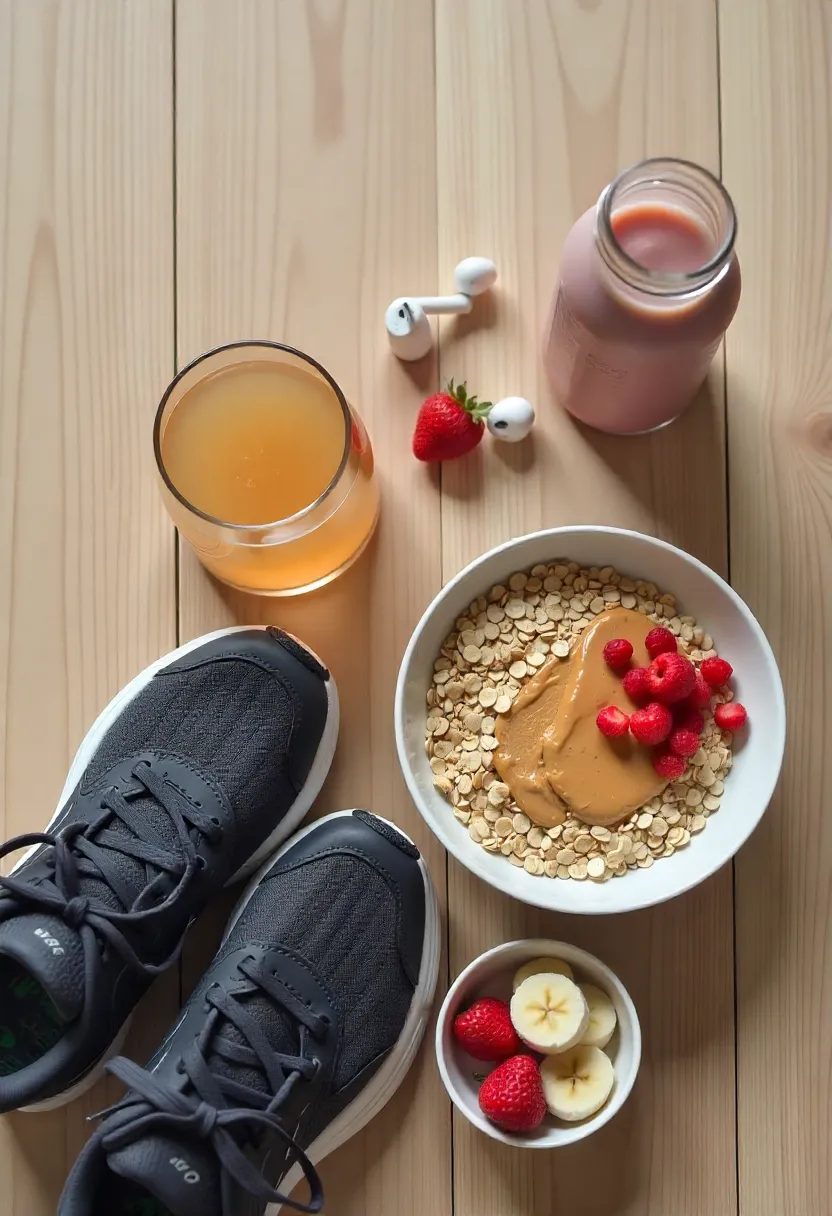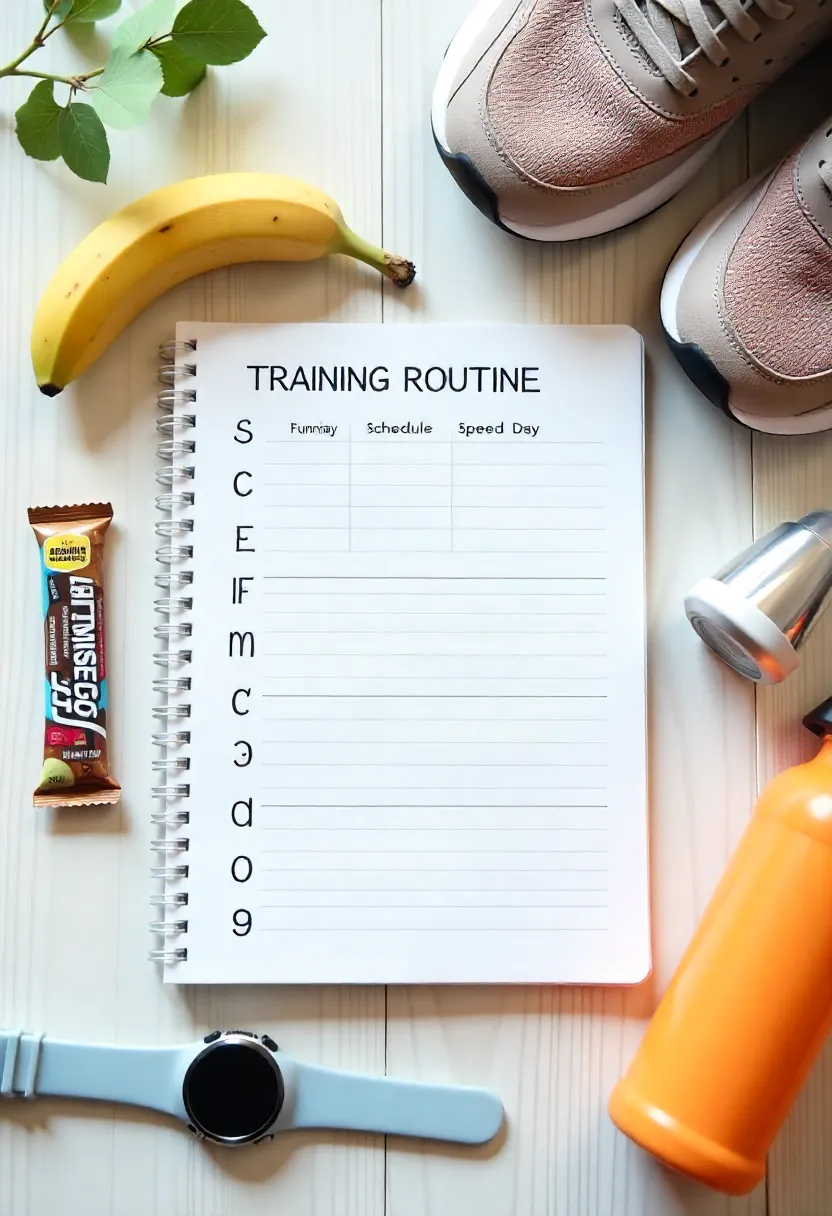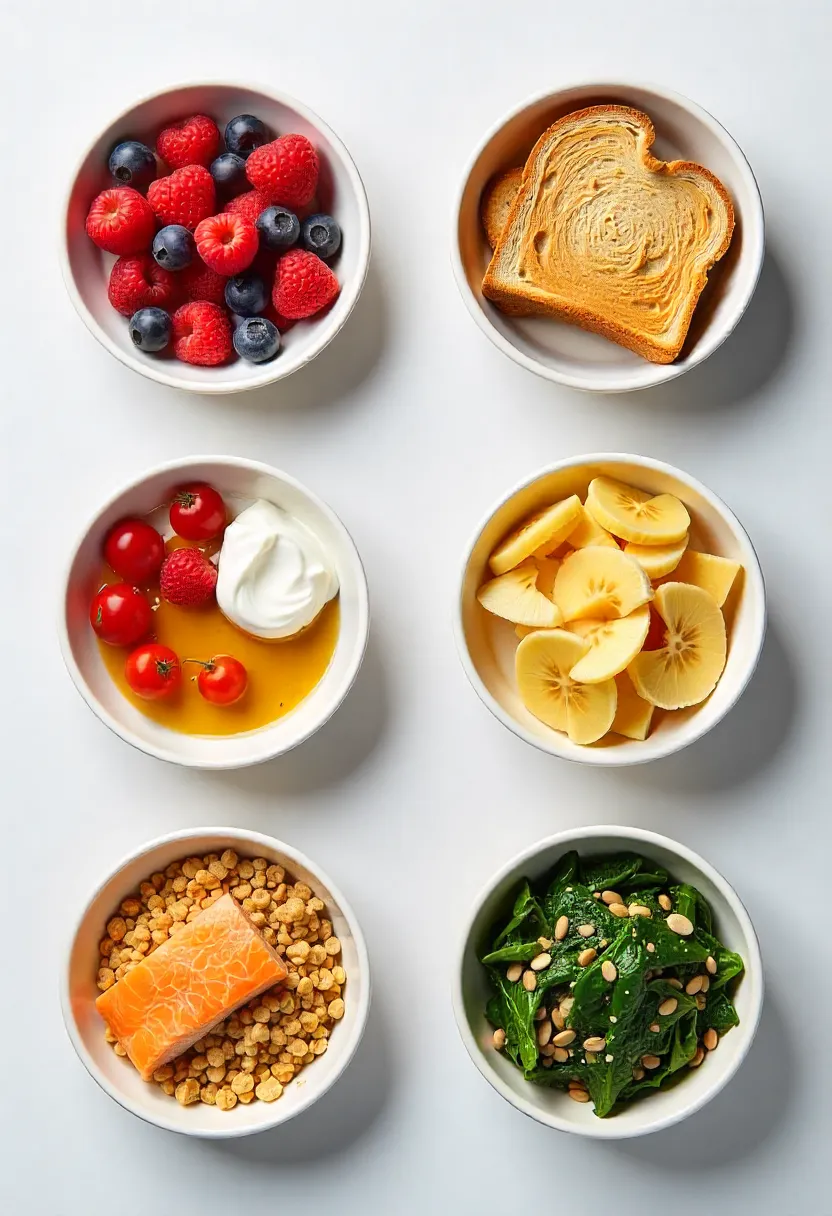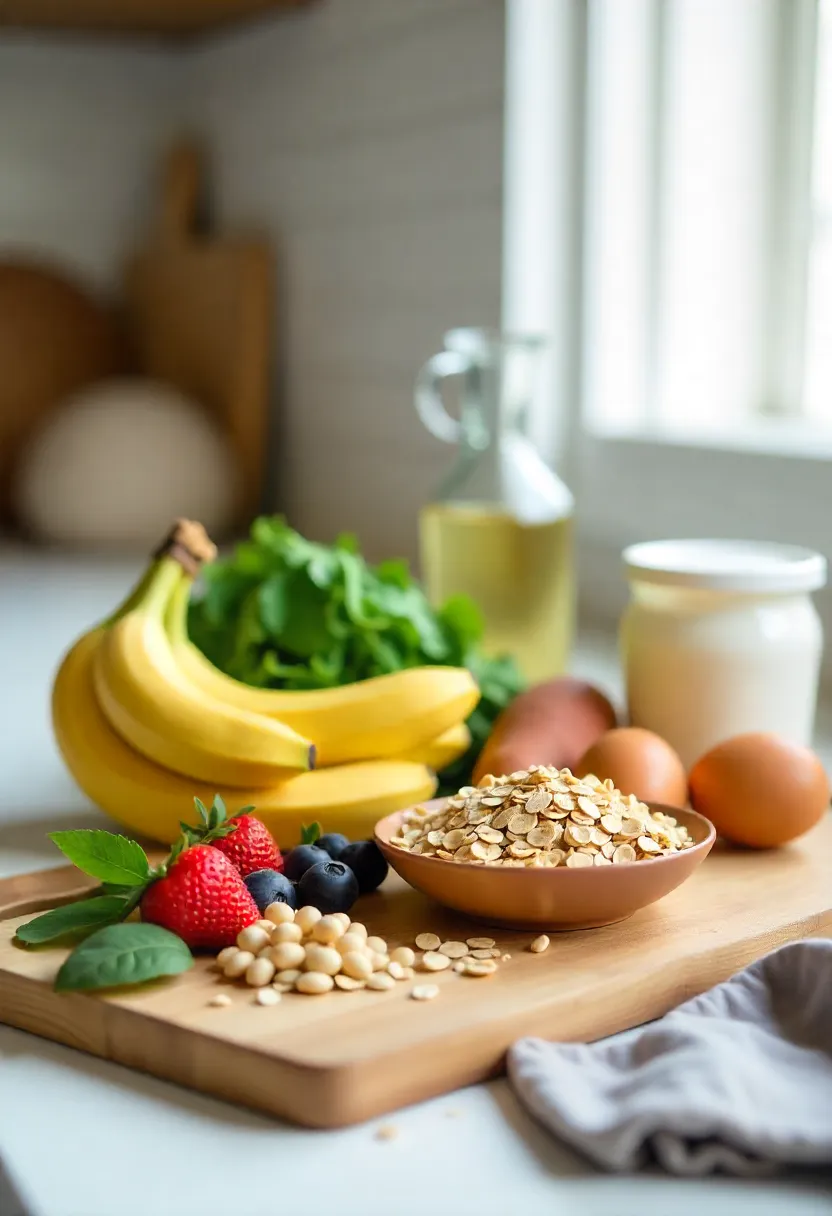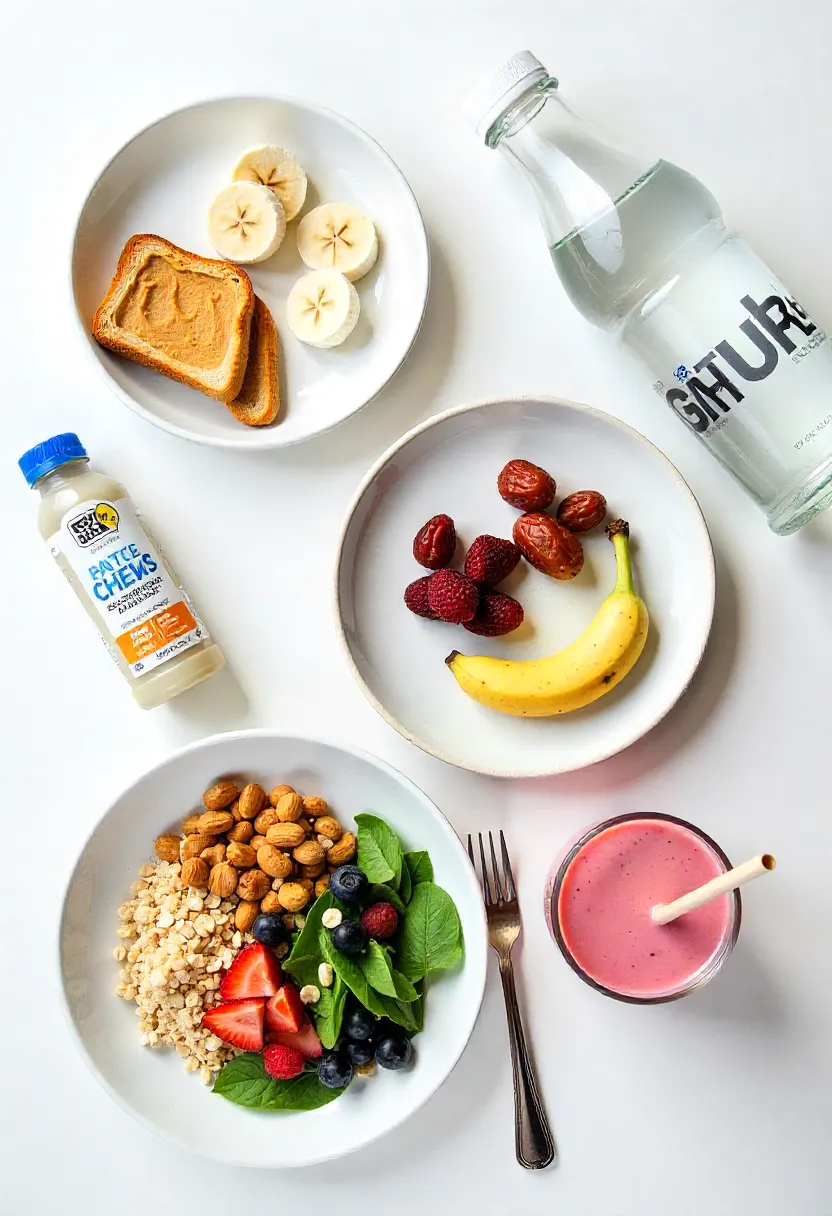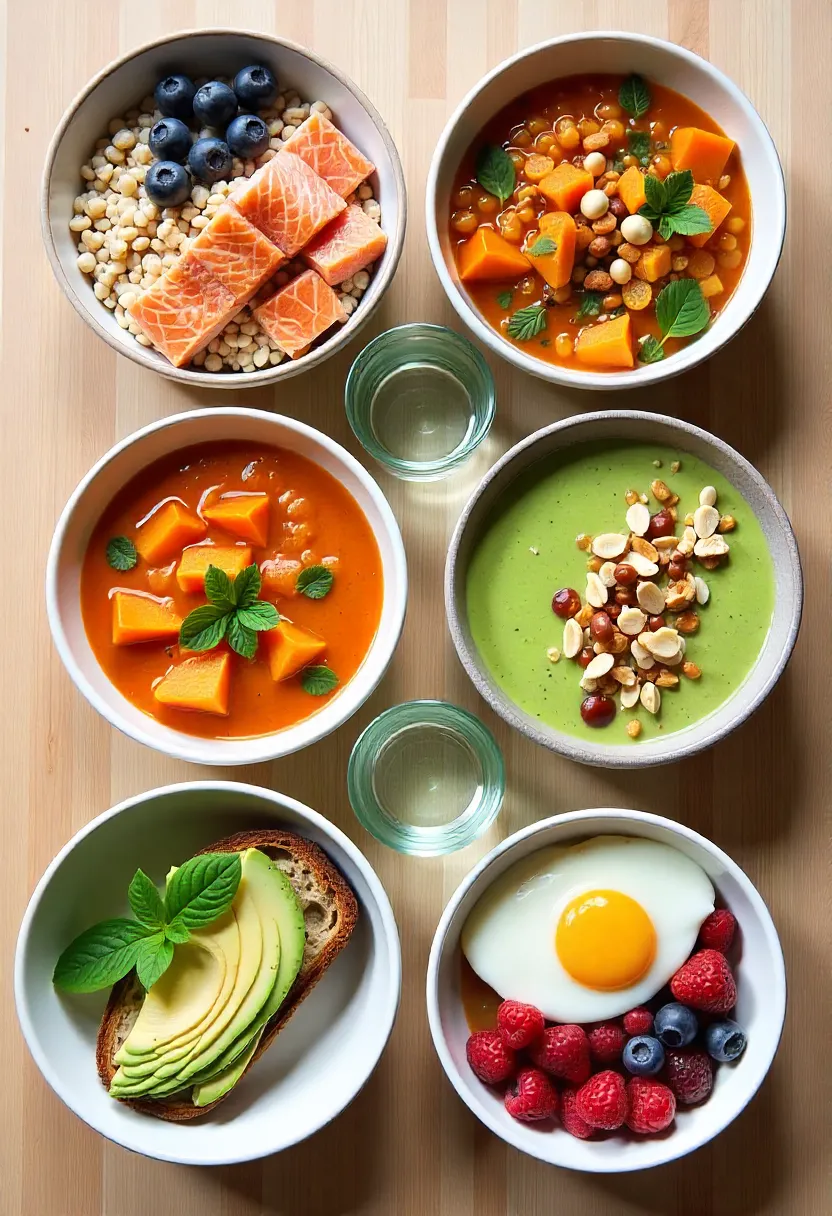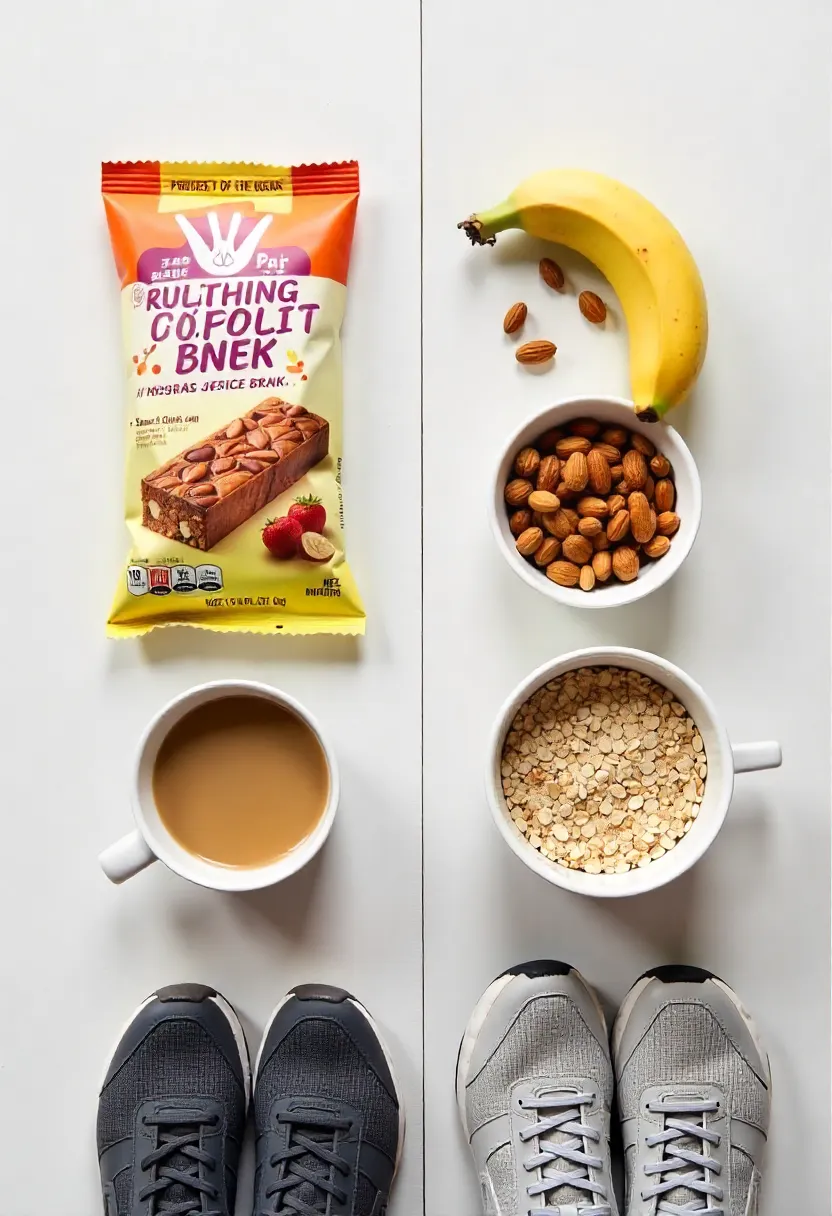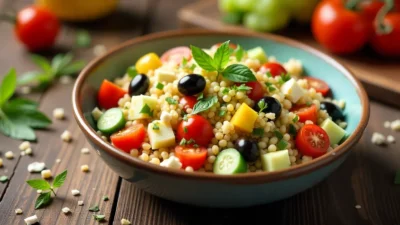Contents
- Why Nutrition Matters for Runners
- Understanding Your Training Stages
- Nutrition Plan for Each Training Stage
- Everyday Nutrition Essentials for Runners
- Pre-Run, During-Run & Post-Run Fueling
- Practical Meal Ideas & Mini Runner Meal Plan
- Common Nutrition Mistakes Runners Make (and How to Avoid Them)
- Tune Nutrition to Your Body & Goals
- Conclusion — Fuel the Miles, Enjoy the Journey
Nothing feels quite like a good run — that steady rhythm of breath, the mind clearing, the body warming, the world softening around you. Whether you’re jogging through your neighborhood at sunrise or pushing through interval training before dinner, running is a dialogue between your body and your energy reserves. And here’s the truth most runners discover sooner or later: how you fuel determines how you feel.
Running isn’t just about lacing up and heading out.
It’s about giving your body what it needs to move, recover, adapt — and thrive. When nutrition supports your training, running stops being a struggle and becomes a flow. Muscles feel stronger. Breathing eases. Recovery happens faster. You finish not depleted, but satisfied. 🌿💪
Inspired by guidance shared in BBC Good Food’s insights on running fuel and training structure, this guide takes a warm, realistic, and everyday-friendly approach to nutrition for runners. No rigid meal rules. No intimidating science talk. Just practical wisdom, fueling principles, and delicious food ideas to support every stage of your training — from easy jogs to long Sunday runs.
Because running isn’t just exercise — it’s self-care, mood-lifting therapy, and sometimes a quiet moving meditation. And the food you eat can either fight your body… or help it fly.
Ready to nourish your miles — one balanced, tasty plate at a time?
Let’s fuel smarter, feel stronger, and enjoy every stride. 🏃♀️🥗✨
Why Nutrition Matters for Runners
When you run, your body becomes a small, brilliant engine — muscles firing, lungs opening, mind sharpening with each step. But even the best engine needs the right fuel. Good nutrition isn’t a “nice-to-have” for runners — it’s the quiet force that shapes every stride, every breath, every finish line moment.
Think of it like this:
Training strengthens the body. Nutrition supports the body so it can use that strength.
Without proper fuel, even the most motivated runner hits walls: sluggish legs, heavy breathing, sore joints, energy dips that feel like someone turned off your internal power switch.
But when you feed yourself well? Everything shifts.
You don’t just run — you glide. Your mood lifts. Your recovery speeds up. Muscles rebuild stronger. Your runs stop feeling like battles and start becoming something beautiful — empowering, stabilizing, even joyful.
Here’s what smart nutrition gives a runner:
✨ Steady, reliable energy
Instead of spikes & crashes, your body has a smooth runway to push forward.
💪 Stronger muscles & fewer injuries
Protein helps repair fibers, while vitamins and minerals support joints, oxygen flow, and bone health.
⚡ Better endurance & performance
Carb stores dictate how far and strong you can go — they’re your running fuel tank.
🧠 Sharper focus & motivation
Balanced meals stabilize mood and keep your mind steady through effort.
🌱 Faster recovery
Think less soreness, better sleep, more “I want to run again” mornings.
And perhaps most importantly — fueling well teaches you to respect your body, not punish it. Running becomes sustainable, something you can enjoy for years, not a phase marked by burnout or fatigue.
Good food doesn’t just power movement.
It protects your love for the movement.
Understanding Your Training Stages
Not all runs are created equal — and neither are their fuel demands. Some days your body needs a gentle nudge, others a full energy tank, and sometimes what it needs most is… rest (yes, rest is part of training!). Understanding these stages helps you eat not just for hunger, but for purpose — so every mile works with your body, not against it.
Picture your weekly training like a rhythm, each day playing its own role:
Easy or Base Run Days
These are the steady, conversational-pace runs — the foundation of endurance and form. Fuel here keeps your energy even and muscles supported, but you don’t need huge carb loading.
Focus on: balanced meals, whole grains, colorful veggies, quality protein, hydration
Think comfort-simple plates that nourish without weighing down.
Speed or Interval Days
Pace workouts demand power — short bursts, big effort, higher heart rate. This is where carbs become your best friend, supplying quick, clean energy and supporting muscle performance.
Focus on: smart carbs + protein, pre-run fueling, electrolytes
You’re asking your body to punch harder — give it fuel that responds fast.
Long Run days
Long runs stretch you — physically, mentally, metabolically. They require stored energy and mid-run support if you’re out there for over an hour. This is where fueling strategy matters most.
Focus on: carb-forward meals before/after, hydration planning, gentle digestible foods
Think of it as charging your internal battery before heading out, and topping it off again when you return.
Recovery or Rest Days
This is where progress actually happens — muscles rebuild, energy replenishes, hormones reset. You still eat well, just differently: nourishing, steady, anti-inflammatory foods that help tissues repair and glycogen restore.
Focus on: protein, healthy fats, micronutrients, steady carbs, hydration
Fuel for healing, not for speed. Your body is still training — just quietly.
Training isn’t linear — it’s a wave.
Some days you push. Some days you flow. Some days you breathe.
And your nutrition follows that same rhythm. Once you understand the nuance, you start feeling more in sync with your body — and runs begin to feel lighter, stronger, more you.
Nutrition Plan for Each Training Stage
Now let’s take that rhythm and turn it into plates, bowls, and snacks that truly power your movement. Think of this as your runner’s kitchen playbook — simple, energizing, and actually doable on busy days. No extreme rules, no mile-long ingredient lists. Just food that loves your body back.
🟢 Easy / Base Run Day
These runs build endurance without draining your tank — so your meals should be balanced, gentle, and steady-burning.
What your body needs:
✅ Complex carbs (whole grains, sweet potatoes)
✅ Lean protein (eggs, legumes, chicken, tofu)
✅ Healthy fats (olive oil, avocado, nuts)
✅ Veggies for micronutrients & fiber
Examples:
- Oatmeal with berries, honey, and chia seeds
- Brown rice bowl with roasted veg + chickpeas
- Whole-grain toast + avocado + soft-boiled egg
Think: calm fuel. Nourishing, not heavy.
🔴 Speed / Interval Day
Fast work means fast energy. Carbs are your power switch today — paired with protein to support muscle repair.
What your body needs:
✅ Easily digestible carbs before
✅ Electrolytes
✅ Protein within 1 hour after
Examples:
Before run (60–90 mins)
- Banana + peanut butter
- Greek yogurt + berries
- Piece of sourdough toast + honey
After run
- Rice or pasta + lean protein + greens
- Protein smoothie with banana & oats
Buzzword today: quick fuel, quick recovery.
🟣 Long Run Day
The long run is your weekly “energy marathon” — even if you’re not training for one. Fuel starts before, continues during, and finishes after.
What your body needs:
✅ Carbs, more carbs, and some more carbs
✅ Hydration + electrolytes
✅ Gentle digestion foods
✅ Protein after to rebuild
Eating flow:
Night before: rice/pasta/grains + protein + veg
Morning: toast + nut butter + banana + small coffee
During (if >60–90 min): gels, fruit chews, banana bites, sports drink
After: carb-rich meal + protein + salt
You’re charging a battery here — honor the effort.
🟤 Rest / Recovery Day
This isn’t slacking. This is science. Muscles rebuild stronger now — as long as you feed them.
What your body needs:
✅ Protein (muscle repair)
✅ Omega-3 fats (reduce inflammation)
✅ Antioxidant-rich fruits + veg
✅ Easy, steady carbs
✅ Lots of water
Examples:
- Salmon or lentils + quinoa + leafy greens
- Chickpea salad + olive oil + lemon
- Cottage cheese bowl with fruit + seeds
Rest days are for repair, not restriction.
Everyday Nutrition Essentials for Runners
Great running performance isn’t built only on “running days.”
It’s built quietly — forkful by forkful — in the ordinary meals between sessions. Daily nourishment shapes how you wake up, how your legs feel by 3 p.m., how quickly you bounce back from hills and intervals, and how steady your mood stays across your week.
Think of this section as your runner’s kitchen foundation — simple, real foods that support long-term strength, not just one good workout.
Carbohydrates: Your Running Fuel
Carbs are not the enemy — not for runners.
They’re the spark, the engine, the repeat-run magic. 🍞🍌🥔
Choose slow, nourishing carbs that give long, steady energy:
- oats, quinoa, brown rice
- whole-grain pasta or sourdough
- sweet potatoes
- beans & lentils
- fruit (especially bananas, berries, citrus)
They help fill glycogen stores — your long-run battery.
Protein: Repair & Rebuild
Running stresses muscles in a good way — they grow, adapt, and strengthen… if you help them recover.
Aim for a bit of protein at every meal:
- eggs, yogurt, cheese
- chicken, fish, turkey
- tofu, tempeh, beans
- cottage cheese, protein yogurt
- nuts & seeds
Protein is the quiet architect behind stronger strides. 💪
Healthy Fats: Joint & Brain Support
Fats reduce inflammation, protect joints, and stabilize hormones — big wins for runners.
Choose smart fats:
- extra-virgin olive oil
- avocado
- nuts & seeds
- oily fish (salmon, sardines)
These help every run feel smoother — literally and figuratively. ✨
Hydration & Electrolytes
Even a little dehydration can tank performance.
Runners need fluids regularly — not just during workouts.
Daily rhythm:
💧 water through the day
🧂 electrolytes on long or sweaty workouts
🍌 potassium & magnesium foods for muscle health
Think hydration as part of training — not an afterthought.
Micro-nutrients That Matter
Your body needs more than macros. It needs supporting characters that keep the whole show running:
- Iron (spinach, beans, meat) — oxygen transport = energy
- Calcium & Vitamin D — bones & strength
- B vitamins — energy conversion
- Antioxidants (berries, leafy greens) — reduce inflammation
Colorful plates = stronger, happier running legs 🌈
Nutrition for runners is not about dieting, restriction, or chasing perfection.
It’s about fueling life — workouts, recovery, sleep, mood, everything.
Small steady habits stack up into strong, resilient bodies that actually enjoy movement.
Pre-Run, During-Run & Post-Run Fueling
Food doesn’t just matter what you eat — timing changes everything. Think of fueling like giving your body little love letters at the right moments: a boost before effort, steady support along the way, and a hug afterward.
Let’s break it down simply and gently.
🍽️ Before Your Run: Fuel the Engine
You’re setting the stage — not stuffing your stomach. Aim for something light, digestible, and comforting.
When to eat:
⏱️ 60–90 minutes before the run
What to focus on:
✅ easy carbs
✅ small portion of protein
✅ hydration
❌ avoid heavy fats & fiber (save those for later)
Examples:
- Banana + spoon of nut butter
- Toast with honey or jam
- Yogurt + berries + drizzle of oats
- Small bowl of oatmeal with cinnamon
Think: energy without heaviness.
You should feel comfortable, not full.
🏃♂️ During Your Run: Keep the Flame Alive
For runs shorter than 60 minutes, water is usually enough.
For longer runs, you start topping off the tank.
When:
⏱️ After 60–90 minutes, then every 30–40 mins
Options:
- Electrolyte drink
- Sports gel or chews
- Banana slices
- Dates or dried mango
- Homemade honey-salt drink
Your goal isn’t a feast — it’s steady fuel drip so you don’t crash.
🥗 After Your Run: Repair, Refill & Recover
This is the golden window where your body says:
“Help me rebuild — I’m ready!”
When:
⏱️ Within 30–60 minutes
What to focus on:
✅ carbs to replenish muscles
✅ protein to rebuild fibers
✅ electrolytes + fluids
✅ colorful veg for antioxidants
Meal ideas:
- Bowl with rice, chicken or tofu, greens, olive oil
- Protein smoothie with banana + berries + oats
- Eggs + potatoes + spinach
- Greek yogurt with fruit + granola & seeds
Add water & a pinch of salt or mineral hydration.
You’re not “rewarding” your body — you’re refueling the machine that carried you.
Fueling this way turns the cycle into something elegant and kind:
prepare → sustain → restore
It’s not about strict rules — it’s about listening, responding, supporting.
When your body feels cared for, your runs feel lighter, stronger, smoother.
Practical Meal Ideas & Mini Runner Meal Plan
Fueling for training doesn’t have to feel complicated — or boring.
Think nourishing bowls, warm wholesome breakfasts, fresh snacks you can grab between meetings, and dinners that help your body quietly rebuild overnight.
Here’s a gentle 3-day runner-friendly meal rhythm — balanced, delicious, doable.
Not a diet. Not perfection. Just smart, satisfying, real food.
🌅 Breakfasts That Build a Strong Start
Day 1 — Warm Oat Bowl
Oats with banana, cinnamon, chia seeds & peanut butter
Slow-burn energy + potassium for muscles.
Day 2 — Protein Toast
Sourdough toast, cottage cheese or ricotta, cherry tomatoes, olive oil drizzle
Carbs + protein + Mediterranean vibes.
Day 3 — Eggs & Greens
Scrambled eggs, sautéed spinach, roasted sweet potato cubes
Runner-friendly proteins + complex carbs.
🥗 Lunches That Keep You Light & Energized
Day 1 — Mediterranean Grain Bowl
Quinoa, roasted zucchini, chickpeas, feta, lemon-tahini dressing
Colorful, protein-rich, satisfying.
Day 2 — Salmon & Brown Rice Plate
Baked salmon, brown rice, steamed broccoli, olive oil + herbs
Anti-inflammatory fats = happy joints.
Day 3 — Lentil & Pasta Minestrone
Veggie-packed soup with lentils & whole-grain pasta
Carbs + protein + comfort.
🍎 Snacks for Steady Energy
Pick 1–2 daily:
- Banana with almond butter
- Greek yogurt + berries
- Protein smoothie with oats
- Handful of nuts & dried fruit
- Whole-grain crackers + hummus
Small snacks beat energy crashes.
🌇 Dinners That Repair & Restore
Day 1 — Turkey or Tofu Stir-Fry
With jasmine rice, mixed veg, sesame, ginger
Lean protein + gentle carbs.
Day 2 — Pasta Night
Whole-grain pasta, tomato-basil sauce, olive oil, Parmesan, side salad
Carbs to refill glycogen + antioxidants.
Day 3 — Baked Chicken & Potatoes
Or chickpea tray bake — with rosemary, olive oil, greens
Simple, grounding, nourishing.
💧 Don’t Forget
- Water throughout the day
- Electrolytes after long/sweaty runs
- Herbal tea or magnesium drink before bed for recovery
This isn’t about eating “perfectly.”
It’s about giving your body what it needs to move well, recover well, and feel good living an active life.
You’re not just feeding a runner.
You’re feeding a human who runs — and deserves food that brings strength, comfort, and joy.
Common Nutrition Mistakes Runners Make (and How to Avoid Them)
Even with the best intentions, runners often fall into a few familiar traps.
They don’t mean harm — they’re usually just responding to hustle culture, old diet myths, or thinking “running will fix everything.” But the body whispers… then it shouts. And learning these gently helps you protect your energy and joy.
Let’s clear them up with kindness and real solutions. 🌿
❌ Skipping Breakfast Before Runs
Running on empty may feel “light,” but your muscles are craving fuel.
Try instead:
A banana, toast with honey, or yogurt.
Small > nothing. Your body deserves a head start.
❌ Under-eating on Training Days
Many runners think more miles = fewer calories.
Truth: more miles = more fuel needed. Under-eating leads to fatigue, irritability, and stalled progress.
Fix:
Add carbs + protein to both pre- and post-run meals.
Fuel helps you show up stronger tomorrow.
❌ Fear of Carbs
Carbs are a runner’s best friend, not a villain.
They refill glycogen — your power source for every mile.
Choose:
oats, rice, pasta, potatoes, fruit, sourdough — foods that love you back.
❌ Relying Only on “Fitness Snacks”
Bars, gels, sports drinks have their place — but everyday nutrition needs real ingredients.
Better balance:
Nuts, fruit, yogurt, eggs, hummus, smoothies.
Whole foods = long-term performance.
❌ Forgetting About Hydration
Dehydration sneaks up — fatigue, headaches, heavy legs, dizziness.
Remember:
Water daily + electrolytes on sweaty or long-run days.
Your muscles are 70% water — treat them kindly. 💧
❌ Ignoring Recovery
Finish the run → shower → move on?
Easy mistake. But skipping recovery nutrition slows adaptation.
Aim for:
Carbs + protein within 60 minutes post-run.
Think: simple plate, big payoff.
❌ Thinking “More Running = Better”
Nutrition isn’t just fuel — it’s part of recovery. If you’re under-eating, exhausted, or constantly sore, the problem isn’t your training plan… it’s missing energy.
Sometimes the most disciplined thing you can do is rest and nourish.
There’s no shaming here — only learning and adjusting.
Every runner evolves with time, and every new habit becomes a small act of respect toward your body.
Tune Nutrition to Your Body & Goals
No two runners are the same.
Different bodies, different metabolisms, different life schedules, different needs. The most powerful thing you can learn as a runner isn’t a magic food list — it’s how to listen to yourself.
Forget the idea that fueling should look “perfect.”
Instead, aim for aligned — aligned with your training, your hunger, your energy, your goals, and your lifestyle.
Here’s how to gently tune into what you need 👇
🧠 Listen to Energy Signals
Ask yourself:
- Do I feel strong on runs?
- Or sluggish, heavy, low-mood?
If runs consistently feel “hard,” it may not be training — it may be fueling.
🍽️ Notice Hunger, Don’t Fight It
Running increases appetite — that’s your body speaking biology, not lack of willpower.
On heavier training days, you may truly need more food.
And on quieter days, less — without forcing rules. Allow natural rhythm.
📈 Pay Attention to Recovery
Soreness lasting days? Trouble sleeping? Mood dips?
These often signal your body wants more nourishment — especially protein and carbs.
Fuel isn’t indulgence.
Fuel is respect.
⚖️ Don’t Copy Someone Else’s Plate
Instagram smoothies and marathon-runner meal videos can be fun, but your fueling depends on:
- your pace
- your mileage
- your body size
- your lifestyle stress
- your sleep
- your hormones
- your goals
Your best diet will never be a copy-paste — it will be discovered through awareness.
🧊 If You’re Training Hard, Get Support
If you’re increasing distance, aiming for a race, or recovering from injury, a sports-focused dietitian can help fine-tune meal timing, macros, and supplementation.
Think of it like having a coach for your plate — guidance, not restriction.
Running nourishes you physically and mentally.
Let your food return that kindness — flexible, intuitive, responsive, joyful.
Conclusion — Fuel the Miles, Enjoy the Journey
Running isn’t just a sport — it’s a rhythm. A pulse. A moving meditation.
Some mornings you lace up with fire; other days you move gently, just to feel your breath and the quiet hum of your body in motion. And through it all, food becomes your steady companion — a partner in strength, in recovery, in joy.
This isn’t about strict rules, calorie math, or chasing a “perfect runner’s diet.”
It’s about nourishment. Balance. Respect.
Feeding the body that carries you through miles and moments, sunrises and sweat, breakthroughs and rest days.
Fueling well means…
✨ Runs feel lighter
✨ Muscles repair faster
✨ Your mood stays steadier
✨ You show up with energy instead of exhaustion
✨ You build a relationship with movement, not a battle against it
The real “runner’s diet” isn’t a diet at all — it’s a practice of care.
A warm bowl of oats before a morning trot.
A banana on busy days.
A nourishing plate after pushing your limits.
A gentle meal when you rest.
Small choices, repeated with kindness, shape strong legs and happy lungs.
So here’s your invitation:
Eat enough. Drink water. Add color to your plate. Respect recovery as much as mileage. And trust your body — it’s wiser than any trend or algorithm.
Run with heart.
Fuel with intention.
Celebrate both movement and rest.
And remember, the finish line isn’t a destination —
it’s every step you take toward feeling alive in your own skin. 🏃♂️💛🥣
You don’t just run to get stronger —
you fuel so you can run with joy.


